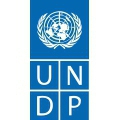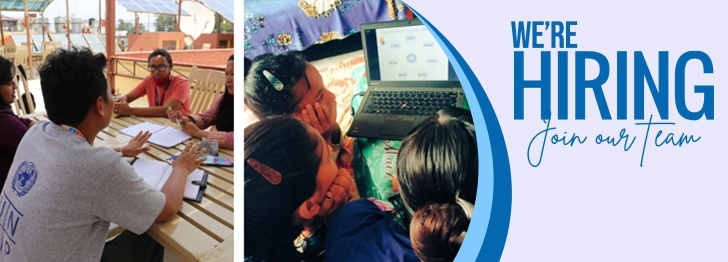


The United Nations Development Programme (UNDP) Nepal works with the people and Government of Nepal, and other development partners to pursue equitable and sustainable human development goals through eradication of poverty, increase in livelihood opportunities, improvement in community resilience against conflict, disasters and impact of climate change, while laying down strong foundations for a society based on rule of law with an inclusive and participatory democracy.
Views: 2135 | This job is expired 11 months, 2 weeks ago
Position: Individual Consultant - Socio-Economic Risk Mitigation
Ref. No: UNDP-NPL-00320 - Individual Consultant - Socio-Economic Risk Mitigation.
Project: Sambodhan- Addressing socio-economic vulnerabilities through Temporary Basic Income in Nepal
Assignment: To review and assess the existing and success practices of various socio-economic risk mitigation policies and schemes provisioned by the local and provincial government to protect their people from various vulnerability shocks and identify gaps as policy and programmatic solution to protect vulnerable groups in Nepal
Reports to: Portfolio Manager, Inclusive Economic Growth, UNDP Nepal and Project Coordinator
Duration: 60 actual working days spread over August 2024 to October 2024
Field Visit: UNDP will cover the cost of travel and DSA as per UNDP rule and regulation. The consultant will have to take prior approval for field travel outside Kathmandu valley and should follow the administrative rule of UNDP.
1. Background and Introduction:
Nepal has made significant progress in recent years in addressing socio economic vulnerabilities, yet with emerging crisis, disasters, economic downturns, and existing social disparities, it continues to face challenges related to poverty, inequality and vulnerability at various dimensions. Risk financing, social protection/ safety nets policies and schemes play a crucial role in safeguarding the well-being of its population, particularly vulnerable groups facing various forms of deprivation and vulnerabilities.
Nepal's government has made efforts to develop and implement risk financing and social protection/ safety nets policies and schemes to address the needs of its citizens, mostly those who are vulnerable and at risk of vulnerability. These policies aim to provide support and assistance to vulnerable populations during times of hardship, enhance access to basic services, and alleviate poverty across the country.
Despite the government's efforts, there are challenges and gaps in the implementation and effectiveness of risk financing and social protection/ safety nets policies/schemes. These challenges might include limited coverage of the intended beneficiaries, difficulties in accessing services, inadequate financial resources, and coordination issues among various government agencies responsible for doing it.
Nepal is home to several vulnerable population groups, including such as the elderly, persons with disabilities, children at various life risk, single-parent households, people with chronic diseases, people with high risk of migration, people with often loss of livelihoods, gender disparity, people forbidden with basic services, those living in remote areas, those affected by natural disasters and various other socio-economic factors. Understanding the specific needs and conditions of these vulnerable populations is critical for designing and implementing effective policies and programmes and that will protect people from arrays of critical situation during times of hardships and will protect them from risks and vulnerabilities.
Given the significance of addressing socio economic vulnerabilities in Nepal's socio-economic development; after federalism, local governments and provincial government has contributed lot to protect the vulnerable populations in unique and innovative way through various local programmes and schemes. These are even very contextual programmes to address local needs and demands and have truly addressed to protect people from various risks shocks. Many local governments in Nepal have practiced their own risk financing and social protection/safety nets schemes in their areas that are undocumented and are not accumulated. These even have an opportunity to scale up and adopted by other local governments. There are gaps in governing these schemes and interventions that can be coherent, sustainable and guided through human development principles.
Thus, it is imperative to conduct a comprehensive study at local and provincial level to document the best practices and successful examples of interventions on various risk mitigation measures and schemes adopted by local government and province government, to enhance the well-being of vulnerable populations in Nepal and at the same time to identify the gaps and challenge that has obstructed local and province government to deliver this support. This will in turn allow to find solution that the local and province government could think way forward in addressing socio-economic vulnerabilities.
Along as mentioned in objective, UNDP Nepal is thus seeking an expert to primarily identify the policy and programmatic way forward to protect people from various risks and vulnerabilities.
2. Objectives and outcome of the study:
The study's findings will serve as a valuable way forward and a resource document to contribute to evidence-based decision-making in allowing for the design and implementation of more effective and inclusive risk financing and social protection/safety nets policies/schemes that address the specific needs and vulnerabilities of the country's diverse population. The study aims to provide valuable insights that can lead to positive impacts on the well-being and livelihoods of vulnerable populations, contributing to Nepal's overall socio-economic development.
The main objective of the study is to:
3. Scope of Work:
Required Education and Experiences:
For detailed TOR, Click Here
This job has expired.









